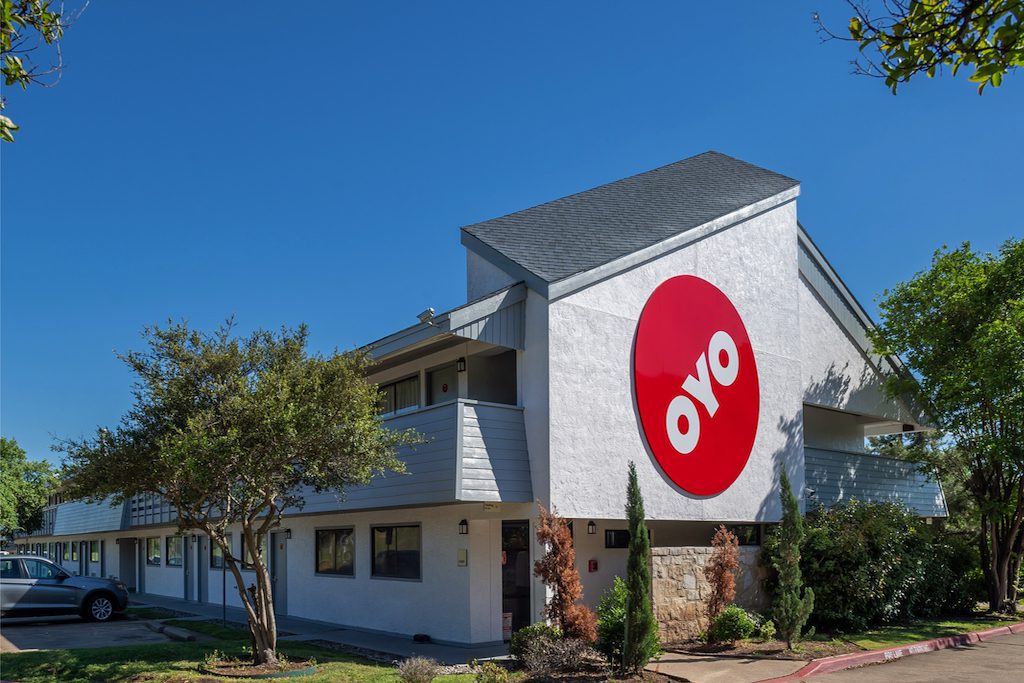Skift Take
If the cliché "no pain, no gain" applies to disruptor Oyo, then the chain is clearly in the pain part of that equation. The brand has definitely taken a huge reputational hit that will play out for months. There are certainly positives in Oyo's renewed value proposition to many properties if the chain doesn't trip over itself.
In a business model shift with parallels to changes in its global strategy, Oyo this week laid off around 360 U.S. staff — more than one-third of the total — as it moves away from growth at all costs to a more balanced approach.
The layoffs, Skift has learned, took place across numerous job categories, including business development managers, talent acquisition leads, and area general managers. Business development, or sales, roles were particularly hard hit — California lost more than 50 business development managers, Florida saw more than 20 firings in that category.
These sort of job cuts are taking place around the world. Oyo also reportedly fired 1,200 of its staff in India and China in the last few weeks.
Skift spoke with Oyo business development people in the United States on Thursday who cited firings across the country.
That development fits in with an email, obtained by Skift, from Oyo Chief Operating Officer Abhinav Sinha to the U.S. team Wednesday with the subject line, “Way ahead for OYO US.” (See the text of the email embedded below.)
Because Oyo hopes to emphasize profitability and sustainable growth that means “some roles will become redundant,” Sinha wrote.
“We will be primarily be redirecting resources from sales and support functions to functions that build our operational capabilities like revenue management, data science & machine learning. engineering, and other areas,” Sinha wrote.
The COO said the decisions have been difficult but “he’s confident that these are the right decisions for the business today.”
The three elements to the changing strategy include “profitability through measured growth” and technology investment; realigning the chain’s network plan, and centralizing some processes to create “highly efficient teams,” Sinha wrote.
An Oyo spokesperson conceded Thursday that “while we are proud to have grown so quickly, we recognize that we sometimes got ahead of ourselves and are now implementing those learnings.”
The India-headquartered and Softbank-funded hotel chain has been reeling in recent months, with allegations of fraud, hotel owners dropping out in waves, layoffs, and pressure from investors to stem losses, and emphasize a march toward profitability.
The spokesperson said the “difficult decisions about headcount” would enable the company to “hire and invest in other areas that are key to our ability to serve property owners and guests well for the long term.”
Earlier in the week, Oyo’s founder Ritesh Agarwal told Skift during the Americas Lodging Investment Summit in Los Angeles “we feel after (the restructuring), it’s put your head down and execute. At the same time, any of the restructuring that’s happened, we’ve tried to be very, very competitive in terms of making sure we do it the right way, ensure that there is more severance than what is required as per contracts to make sure people have the time.
“There’s outplacement firms actively working to make sure each of the Oyopreneurs gets the right opportunity and we’re actively engaged with the teams,” Agarwal added.
Business Model Changes
Two business development managers, both fired this week, separately told Skift that in addition to the layoffs, Oyo tweaked its business model in late January. The capital improvement investments that Oyo made so hoteliers could fix up their properties used to be considered “free money” in the sense that it didn’t have to be paid back, but now is immediately withdrawn by Oyo out of the hotel’s revenue in 15 monthly payments, according to one contract that Skift obtained.
In another stiffening of contract terms, if a hotelier is terminated by Oyo for cause, any lost revenue to Oyo is payable for three years after the date of termination.
Sources said Oyo is continuing to offer revenue guarantees to some hotel owners but it is lower than earlier pledges, and the revenue share model between properties and the chain is more central to the business model. According to several sources, But the revenue share arrangement could range from 7-13 percent, is the core element of the business partnership between the property and chain.
Oyo’s Hiring Practices
One business development manager who was laid off this week labeled Oyo’s hiring practices “insane,” with promises made about individual sales staff being responsible for certain territories, but finding out once on-the-job that more than a half dozen employees had been assigned to the same turf.
“They over-hire and overwhelm the market, and waste millions of dollars,” the business development manager said.
In one sales visit to a prospective hotel owner last week, the business development manager said the owner started yelling at her because three other Oyo salespeople had visited recently, and the owner wasn’t interested. “I hadn’t even gotten out of my car,” the business development manager said.
Despite the firings, the business development manager wasn’t completely negative about Oyo’s prospects in the United States. She argued that the value proposition makes sense for some properties that don’t have high occupancy.
Oyo, the business development manager said, can drive occupancy at low rates, and then the plan is to raise rates a few months later. The chain doesn’t “nickel and dime” properties the way some other chains do, and offers online travel agency distribution at around a 13 percent flat commission rate, which can be much lower than the norm.
Oyo’s technology, too, has shown improvements, she said.
— Skift’s Hospitality Editor Nancy Trejos contributed to this report.
Have a confidential tip for Skift? Get in touch
Photo credit: An Oyo hotel in the U.S. Skift
